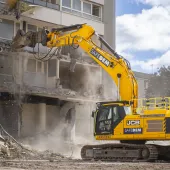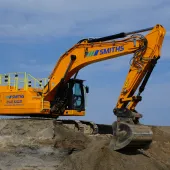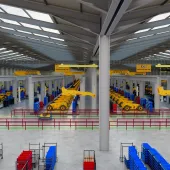JCB introduce new 3.0-litre Dieselmax engine

Culmination of £31 million investment programme set to offer significant fuel-efficiency savings
PRODUCTION of a brand new fuel-efficient JCB diesel engine is about to get under way, marking the culmination of a £31 million investment programme.
In 2011 JCB announced the launch of a new engine development project with the help of £4.5 million from the Government’s Regional Growth Fund. This week the company unveiled the results of that investment – the brand new 3.0-litre JCB430 Dieselmax engine.
Joining the 4.4-, 4.8- and 7.2-litre models, it is the third engine line to be launched by JCB since 2004, the year when engine production first started at JCB Power Systems in Derbyshire.
JCB’s chief executive officer, Graeme Macdonald, said: ‘It is hard to believe that just over 12 years ago JCB didn’t make engines. Today we have produced 400,000 high-performance diesel engines, leading the way with a purpose-built range that saves fuel, is clean and highly efficient.
‘The launch of the brand new 3.0-litre JCB430 Dieselmax engine will build on the success of the JCB Power Systems business and takes the productivity and environmental performance of our engines to a completely new level, particularly on fuel efficiency.’
According to JCB, one of the most impressive features of the new engine is its fuel consumption – using up to 8% less fuel than the company’s already very fuel-efficient 4.4-litre engine.
The totally new 3.0-litre JCB430 Dieselmax engine, which is 30% lighter than the popular 4.4-litre JCB EcoMax engine, has been designed specifically for mid-range construction and industrial equipment operating cycles.
Launched initially with 55kW (74hp), at Stage IIIB/Tier 4 Final, the 3.0-litre engine produces 400Nm of torque at 1,300 rev/min and meets the relevant emissions legislation without any requirement for a diesel particulate filter (DPF), selective catalytic reduction (SCR) or any form of exhaust additive or after-treatment.
The engine has also been designed to be ready for Stage V emissions standards and it will be available with additional power ratings in the future.









